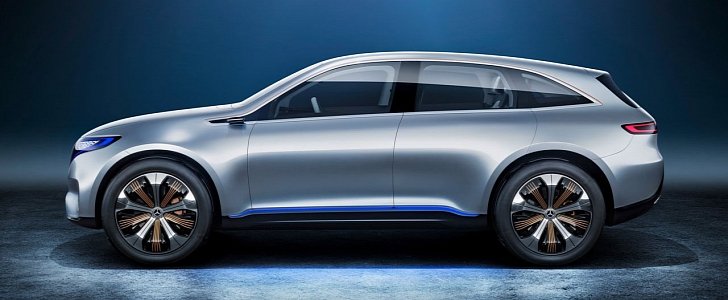There's absolutely no doubt over the level of enthusiasm with which legacy carmakers are making the switch to electric vehicles, if there is any to begin with.
But don't blame them. Imagine you've been training all your youth to become an engineer and worked your entire life as one until one day, somebody came and told you needed to go back to school and study to become a doctor. You wouldn't be too crazy, right? Not to mention you'd feel like you wasted so many years of your life.
The whole diesel debacle started by Volkswagen in 2015 meant that all manufacturers now have to get a bit more serious about their EV productivity if they're to lower fleet emissions to an acceptable level. And with almost all brands about to launch at least one battery-product model over the course of the next year or two, they've clearly been burning the midnight oil.
Daimler and its main passenger car brand, Mercedes-Benz, make no exception. Now, though, the German giant is warning that curbing diesel engine production too swiftly could start a domino effect over its supply chain. And it's not that Daimler cares too much about the companies providing the necessary parts and materials, but that it has active contracts that will need to be fulfilled one way or the other.
Part of Daimler's EV investment to get the EQ sub-brand running is going to end up with its suppliers as they too need to re-equip or expand their facilities to satisfy the new demand.
"Due to the planned electrification of new model series and a shift in customer demand from diesel to gasoline engines, the Mercedes-Benz Cars segment in particular is faced with the risk that Daimler will require changed volumes of components from suppliers," reads the company's annual report, quoted by Automotive News.
"This could result in over- or under-utilization of production capacities for certain suppliers. If suppliers cannot cover their fixed costs, there is the risk that suppliers could demand compensation payments. Necessary capacity expansion at suppliers' plants could also require cost-effective participation."
Of course, nobody really cares about a big and wealthy company whining about having its profits cut, and only temporarily. Well, perhaps the shareholders might have a thing or two to say about that.
The whole diesel debacle started by Volkswagen in 2015 meant that all manufacturers now have to get a bit more serious about their EV productivity if they're to lower fleet emissions to an acceptable level. And with almost all brands about to launch at least one battery-product model over the course of the next year or two, they've clearly been burning the midnight oil.
Daimler and its main passenger car brand, Mercedes-Benz, make no exception. Now, though, the German giant is warning that curbing diesel engine production too swiftly could start a domino effect over its supply chain. And it's not that Daimler cares too much about the companies providing the necessary parts and materials, but that it has active contracts that will need to be fulfilled one way or the other.
Part of Daimler's EV investment to get the EQ sub-brand running is going to end up with its suppliers as they too need to re-equip or expand their facilities to satisfy the new demand.
"Due to the planned electrification of new model series and a shift in customer demand from diesel to gasoline engines, the Mercedes-Benz Cars segment in particular is faced with the risk that Daimler will require changed volumes of components from suppliers," reads the company's annual report, quoted by Automotive News.
"This could result in over- or under-utilization of production capacities for certain suppliers. If suppliers cannot cover their fixed costs, there is the risk that suppliers could demand compensation payments. Necessary capacity expansion at suppliers' plants could also require cost-effective participation."
Of course, nobody really cares about a big and wealthy company whining about having its profits cut, and only temporarily. Well, perhaps the shareholders might have a thing or two to say about that.

